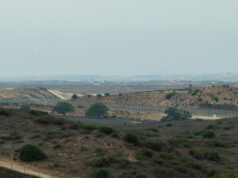Davao City to release new investment code within 1st half of 2019
THE DAVAO city government is aiming to release a new Investment Incentive Code within the first semester of the year, with the draft now under review for approval by the Investment Promotions Center’s board.
“Our target is for the (new code) to be approved before the new set of officials take over,” said Investment Promotions Center head Lemuel G. Ortonio, referring to the midterm elections in May.
Mr. Ortonio, in an interview, said the company contracted to study the amendments to the Code has submitted its draft and this is now being evaluated.
After the investment promotion board’s consent, the new code will be subject to assessment and approval by the city council.
Mr. Ortonio said among the salient points of the draft are the streamlining of the 10 priority areas of investments.
Under the current Investment Incentive Code, the preferred areas of investments are agri-business, tourism and recreational facilities, light manufacturing and assembly, property development, health and wellness including educational and sports facilities, environmental protection or green projects, information and communications technology, generation of new sources of energy, transportation and infrastructure, and public private partnership projects.
Under the new proposal, incentives for some areas of investments will be enhanced and merged, others split, and some eliminated.
“We have trimmed down the number of activities in some investment areas,” Mr. Ortonio said.
He cited as an example that in the case of agri-business, instead of focusing on increasing production, the proposal is to prioritize the setting up of post-harvest facilities so that value can be added to the raw materials.
While the city has a lot of products, “we lack post-production facilities to ensure that these products will have higher values,” he added.
Another key point in the proposed new code is an adjustment on the period for fiscal incentives, including exemptions in payment of real property and business taxes, but the city official declined to give further details.
At present, new investments in the preferred areas are given a three-year exemption, and this period is doubled for those set up outside the central business districts.
Mr. Ortonio also said that the city government is establishing a system that will provide linkages between new investors and national government agencies to improve the level of ease of doing business.
“We will have added services when they (new investors) come to our offices,” he said. — Carmelito Q. Francisco



